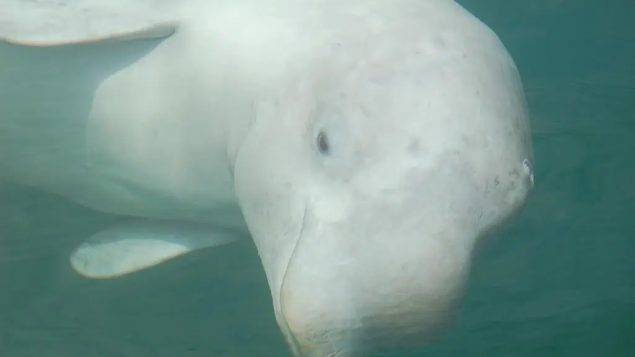Your hosts Stephane Parent, Vincenzo Morello, Marc Montgomery (video of show at bottom)
ListenFacial recognition technology: privacy questions growing

Visitors experience facial recognition technology at a Face++ booth during the China Public Security Expo in Shenzhen 2017. In China, facial recognition is being used by the government to help monitor the movements of the country’s 1.4 billion people. Privacy experts are concerned about police use of the technology in Canada (Bobby Yip/Reuters)
Several Canadian police forces have admitted to experimenting with facial recognition technology, but only after news investigations. Questions are arising about the use of this technology and whether it violates Canadian privacy laws. It also raises the spectre of an Orwellian future, to add to the other aspects of technological tracking of almost everything we do, buy, search for, write on the net, or places we travel to.
Should this technology be so readily used? Many think clear oversight and control is needed. Marc spoke with Teresa Scassa (PhD), the Canada Research Chair in Information Law and Policy and professor, Faculty of Law at the University of Ottawa.
Sanctuary off Nova Scotia: a home for whales who spent lives in aquariums

A beluga whale is seen in this undated handout photo. A U.S.-based conservation group, The Whale Sanctuary Project, has selected an eastern shore Nova Scotia community for a form of retirement home for whales raised in captivity. The Whale Sanctuary Project said Tuesday it has decided in favour of a coastal area of about 40 hectares in an inlet off Port Hilford, along the province’s rugged and lightly populated Eastern Shore. (Catherine Kinsman/The Canadian Press/HO)
Compared to their natural environment of the wide open sea, whales in captivity live in relatively confined spaces in width and depth. Canada recently passed a law preventing the capture or trade in whales, but those already in aquariums can be kept as they couldn’t be released into the open ocean. An environmental group has created the next best thing, a huge fenced in ocean sanctuary where they can live out far more natural lives. The sanctuary will be in an inlet in Nova Scotia.
Terry spoke to Camille Labchuk, executive director of Animal Justice, an ottawa-based animal rights group
Kids Code Jeunesse launches campaign to teach children about algorithms

Kids Code Jeunesse alongside the Canadian Commission to the United Nations Education Science and Cultural Organization launched The Algorithm Literacy Project earlier this week. (Courtesy Kids Code Jeunesse)
We live in an ever increasingly digital world. Children will have to know how to navigate this entirely new environment. That is why Kids Code Jeunesse alongside the Canadian Commission to the United Nations Education Science and Cultural Organization launched the Algorithm Literacy Project earlier this week. The idea behind the campaign is to start kids and the adults around them on a little bit of a journey trying to conceptualize the algorithms in their lives,
Vincenzo spoke to Juliet Waters, chief knowledge officer at Kids Code Jeunesse
Video of show (starts about 0;40)







For reasons beyond our control, and for an undetermined period of time, our comment section is now closed. However, our social networks remain open to your contributions.